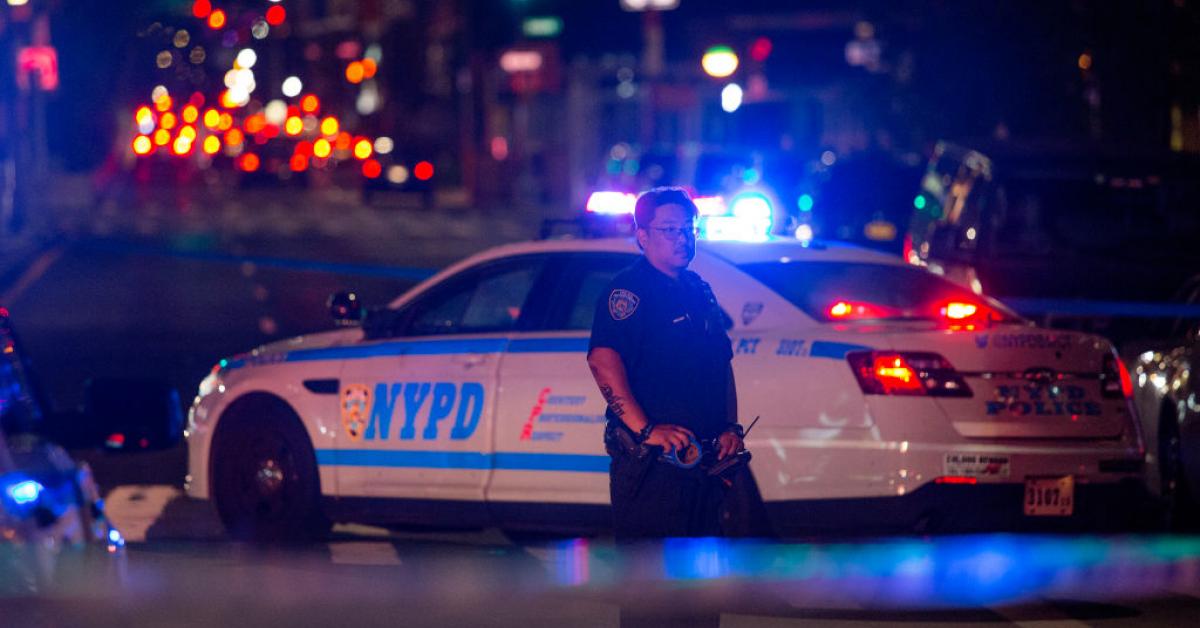By
Anew study by several academic researchers indicates a rising trend in U.S. police resignations over the past year, one that appears to have been exacerbated by the Black Lives Matter-led riots and protests that swept the country last year and generated a massive wave of anti-police criticism.
The study, written by University of Nebraska Distinguished Associate Professor of Criminology Justin Nix and University of Utah PhD candidates Scott Mourtgos and Ian Adams, found that within “a large police department in the western US” voluntary police resignations “increased by 279%” following last year’s protests against the killing of Minneapolis resident George Floyd
Noting their model “predicts that resignations will continue at an elevated level,” the researchers urge officials to “be prepared to confront workforce decline and increased voluntary turnover.”
The team undertook the study “because we’d seen all the headlines about cops quitting at higher rates, but hadn’t seen any rigorous analyses,” Nix told Just the News via email.
While acknowledging that the study’s hard data are drawn from a single jurisdiction, he pointed to “journalistic reporting of similar happenings in other jurisdictions, mostly major cities.”
Nix said the issue predates last year’s riots.
“The main thing to keep in mind is that agencies were struggling to recruit and retain officers even before the Floyd protests,” he said. “It’s been a problem since the Great Recession — but the Floyd protests just made it that much more of a problem.”
Rob O’Donnell, a former detective with the New York City Police Department, said the issue is “no doubt a national trend.” Recently, the city of Minneapolis “only received 150 applicants for 100 open positions, and after initial background checks the qualified number of candidates pool was down to 60-70 applicants,” he said.
“Outside of a livable wage, police only look for one thing: to have the support of those that send them out to do an immensely demanding job,” O’Donnell continued. “Due to recent rhetoric, followed by historically proven bad ideas and policies such as bail reform, COVID criminal releases and activist DAs failing to enforce laws, the support structure has not only rapidly disintegrated, but has become outright hostile, making community policing almost impossible.”
Heather Mac Donald, the Thomas W. Smith Fellow at the Manhattan Institute and a longtime critic of anti-police activism throughout the U.S., argued that “cops are demoralized” and are “telling family and friends to not even think about joining a police force.”
“They have little confidence that if they are indicted for the use of force, their trial will be free from the looming threat of race riots should they not be convicted,” she said.
Bernard Kerik, the former commissioner of the New York City Police Department, said the issue is readily apparent in the city.
“If you talk to the unions in New York City,” Kerik said, “whether it’s the Police Benevolent Association, the sergeants or the lieutenants, all three ranks in the New York City Police Department are leaving early, or they’re leaving right at their 20 — their retirement date. Nobody’s staying on longer than they would. The reason being, they feel they’re not supported.”
He argued that a lack of municipal support in New York and other cities — including criticism from local officials and a reduction in resources — has led to sharply dropping retention rates. “Who’s going to stay for that?” he asked.
Recruitment a ‘tremendous problem’
John Malcom, the director of the Heritage Foundation’s Edwin Meese III Center for Legal and Judicial Studies, agreed that “police officers are resigning” around the country.
“In some cases, budgets are getting cut, or positions are getting eliminated,” he said. “And recruitment is a tremendous problem, particularly in communities of color.”
Police work has “never been a well-paid profession,” Malcolm noted.
“Police officers are like soldiers and firefighters in that they wake up every day kissing their loved ones goodbye and not knowing whether they are going to return at the end of the day,” he said. “If it is not appreciated, and if in fact people are being attacked for being police officers, often verbally and in many cases physically, then I can understand that people might very well decide that this is a profession that they might not want to go into.”
At a large-enough scale, “turnover can lead to a police agency’s inability to respond to calls for service, increased crime, and erosion of public trust,” the study authors wrote.
“Concerns regarding police turnover and crime are compounded by the realities of how police hiring works,” they note elsewhere. “For starters, a months-long hiring process is required to ensure high standards are met. The hiring process typically consists of a psychological exam, medical screening, interview, background check, and more.
“Once hired, though, police officers are not ‘road-ready’. They must graduate from a police academy and then complete a field training phase.”
O’Donnell suggested that after a certain point the matter is not so simple as hiring more police, and that earlier crime waves have demonstrated the difficulty of making up for lost time when police departments fall behind.
“Unfortunately, like we learned in the late ’80s, only when communities become totally unlivable will the cry for change and to restore law and order be made,” he said. “The problem then is that it takes 10 times the resources and time to gain that ground back.”
Malcolm also noted ongoing efforts around the country to strip police officers of “qualified immunity,” a legal shield enjoyed by law enforcement that offers some level of protection from civil lawsuits over decisions made on the job. Without that protection, he said, the “split-second” decisions officers have to make on the streets may open them up to severe legal consequences.
“I can understand why anyone would have second thoughts about staying on the police force,” he said, “and certainly why anyone would have second or third or fourth thoughts about joining it in the first place.”





